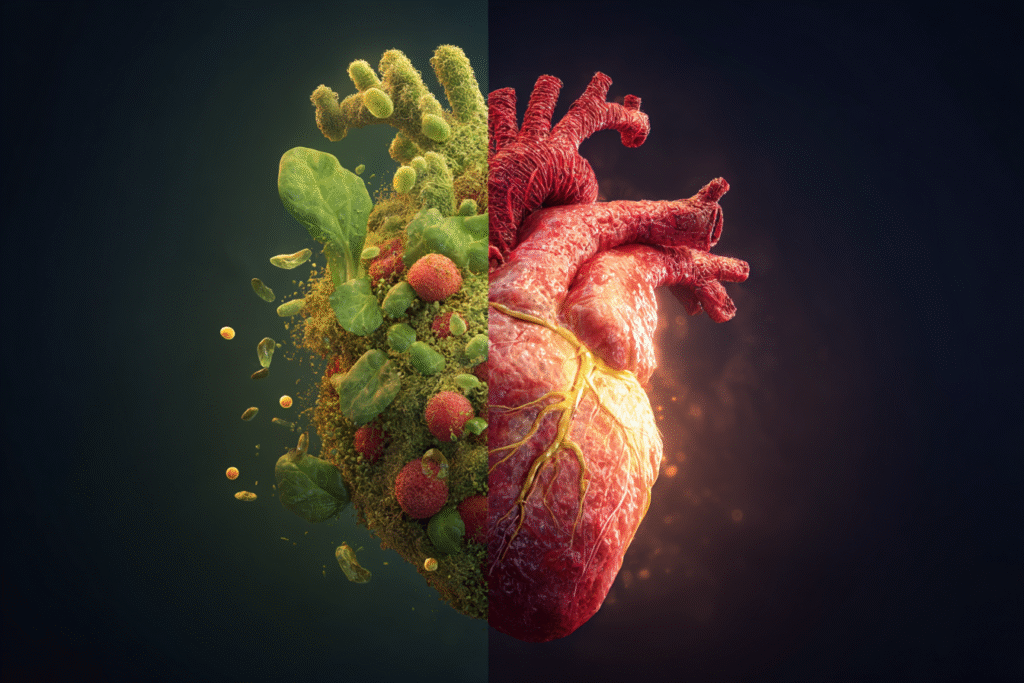What you say with your mouth could have more power over your heart than you believe. Researchers have been aware of the importance of the oral microbiome community of bacteria found on your tongue and gums-in health. A pioneering study in 2025 published in Free Radical Biology and Medicine now demonstrates that ageing alters the interactions of this microbiome with diet, with foods rich in nitrate such as beetroot juice.
The study indicates that the nitrate supplementation is more effective in older adults than in the youth whereby the blood pressure of older adults decreases significantly. The key is that dietary nitrate reforms the structure of the mouth and increases the availability of nitric oxide (NO) a substance that helps to maintain the blood vessels in a healthy and supple condition.
Why Nitric Oxide Matters
Nitric oxide is a small gas molecule with massive roles. It dilates blood vessels, reduces blood pressure and keeps the heart healthy. NO can be generated in our bodies by using enzymes known as nitric oxide synthases (NOS), however, this mechanism decays with age. So there comes diet into play: nitrate is abundant in green leafy foods and beetroot, and can be changed by oral bacteria to nitrite, then to nitric oxide in the bloodstream.
Concisely, the heart protective effect of vegetables cannot be achieved without a healthy oral microbiome.

The Study Design
A placebo controlled, double blind crossover trial was carried out at the University of Exeter and other international partners to compare active controlled and passive controlled recovery in 75 healthy adults, 36 of them old (67-79 years) and 39 of them young (18-30 years).
All participants received 3 2-week interventions that were separated by washouts:
Plato beetroot juice (extremely low in nitrate)
Beetroot juice containing nitrate (approximately 750 mg nitrate/day)
Mouthwash (kills mouth bacteria) Antiseptic mouthwash
The group quantified the oral microbiomes, blood pressure, and nitric oxide bioavailability indicators in pre and post assessment before and after every phase.
Key Findings
Response to Nitrate is Ageing Shaped.
The baseline blood pressure among older adults was higher as compared to the youth.
With the intake of nitrate-containing beetroot juice, the increase in systolic blood pressure of the older subjects was decreased by approximately 7mmHg-a significant clinical threshold that has the potential to reduce the risk of cardiovascular disease.
The young adults were found not to have improved significantly on their level of blood pressure probably because they were already within a healthy range.
Oral Microbiome Reacts to Age.
There was a difference in the change of oral bacteria in both age groups following the nitrate supplementation, but the pattern varied.
In elderly adults, the consumption of nitrates inhibited bacteria of the Prevotella and Vejonella families, which are associated with inflammation and such diseases as hypertension, rheumatoid arthritis, and pneumonia.
Meanwhile, more useful bacteria like Neisseria and Rothia were growing, and more effective in converting nitrate to nitric oxide.
Mouthwash Can Cause an Interruption to the System.
Antiseptic mouthwash, given over two weeks, did not change the overall microbiome, although it decreased the diversity of bacteria in young adults.
It also worsened vascular functioning, in terms of flow mediated dilation, relative to nitrate supplementation.
This is an indication that the cardiovascular effect of nitrate rich foods may be blunted with frequent use of mouthwash.
Why This Matters
The results present a curious age specific spin: as older people are prone to elevating blood pressure and decreasing NO production, in fact, the need to shift to high nitrate diets is more beneficial in them than in the youth. Reorganizing the oral microbiome and increasing the availability of nitric oxide by means of beetroot juice and so forth, could serve as natural cost effective approach to cardiovascular health in aging populations.
This is also relevant to the significance of oral health. Excessive use of antiseptic mouthwashes may compromise the bacteria that we need to trigger dietary nitrate. The next steps can involve prebiotics or probiotics that help boost the nitric oxide pathways by addressing the oral microbiome.
Practical Takeaways
Eat nitrate rich foods daily. Good ones are spinach, arugula, celery and beetroot.
Mind your mouthwash use. Daily antiseptic cleansing not prescribed can also decrease the good bacteria which help in heart health.
The elderly will benefit the most. Nitrate present in the diet may be of particular utility to individuals with age-associated hypertension increases.
The next generation of treatment might be focused on oral bacteria. Probiotics that aid in reducing nitrate to help prevent cardiovascular disease would be a novel area in cardiovascular therapy.
Reference
Vanhatalo, A., L’Heureux, J. E., Black, M. I., et al. (2025). Ageing modifies the oral microbiome, nitric oxide bioavailability and vascular responses to dietary nitrate supplementation. Free Radical Biology and Medicine, 238, 682–696. https://doi.org/10.1016/j.freeradbiomed.2025.07.002

